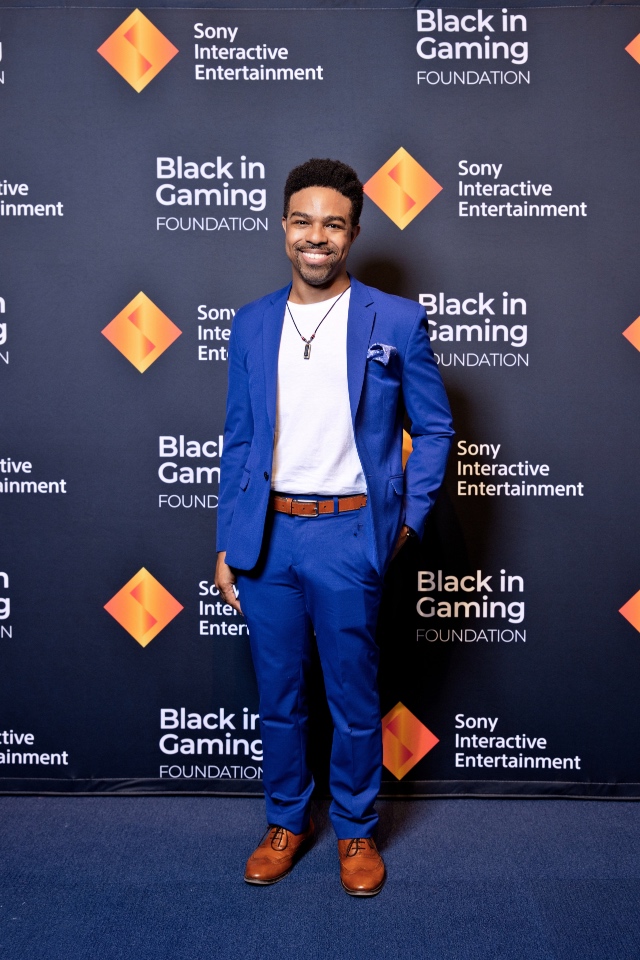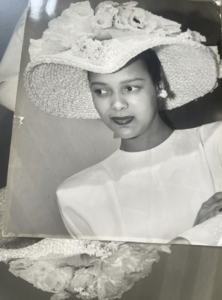
When California State University, Northridge alumnus Chase Bethea was a music-writing teen, he thought he would be a rapper or a producer.
He chose a different pathway instead: game music.
“Everyone always told me [my music] sounds like it’s been a video game, even though that wasn’t what my goal was,” the video game composer said. “So when I discovered that it could be, that I could write video game music…I just decided to pivot, and that’s what locked in.”
Bethea received his bachelor’s in Music — Commercial/ Media Writing from CSUN in 2018. As a multi-award winning professional freelance video game composer, he’s worked on 25 games so far — Aground, On the Peril of Parrots, Team Fight Tactics and more. You can find his games on Steam/Android and consoles like Xbox, Playstation and Switch.
Bethea believes that video game music is important because it’s half of the experience.
“If you ever played Super Mario and tried to play that without any music, it’s going to sound pretty weird,” Bethea said. “That will tell you right there that music is really an impactful thing that humans respond to. The soundtrack of that game creates, and helps tell, the story. It’s another part of the narrative on top of keeping the player through what the designer intended for them to feel, and the message they’re trying to send in some music is a universal language that amplifies that.”
His work is well regarded in the industry, receiving numerous awards and honors for his creative and versatile work. In March, he was honored by the Black in Gaming Foundation, a community of Black professionals in the industry, with the prestigious “Excellence in Artistry” award.
By the time the avid gamer attended CSUN, he was a professional music composer who had been nominated in 2015 for an independent composer award from VGMO (Video Game Music Online). He said he chose CSUN because of a friend who had a good experience there.
When he arrived at CSUN, he already had two degrees — in audio engineering from the Los Angeles Recording School and an associate degree in composition from Moorpark College. While at Moorpark College, he began working as an intern at mobile game company Mobotory Games.
Bethea started with an orchestration class he felt he needed. He ended up taking several classes. He felt CSUN’s curriculum needed more focus on video game music, but he was able to find — and make his own — opportunities to pursue his passions at CSUN.
After checking with the computer science department to see if they had gaming studies, he stumbled upon a small organization on campus called the Game Development Club in the Department of Arts.
“It kind of felt like this little lesson of trying to find a Zelda dungeon,” Bethea said.
He ended up being the first video game composer of the first inaugural Game Jam — an event where teams of developers create a game that fits a theme — for the game development club.
“The game development club, I think, was integral, because I was able to be a liaison for other gamers that wanted to write for game music,” Bethea said. “That wasn’t offered at all throughout the curriculum. So without that club, people wouldn’t have the experience to know how it is to collaborate with other game developers.”
Interest in video game music composition continues to grow at CSUN, where students can prepare for careers through the Commercial Media Writing program in the Department of Music in the Mike Curb College of Arts, Media, and Communication. In addition to the game development club, their interest in the art form is also shared by members of CSUN’s Gamer Symphony Orchestra.
Most of Bethea’s classes were in the music department, but to fulfill general education requirements he took an Asian American Studies class his final year, where he was impacted by a fellow gamer, professor Phillip Hutchison.
“He was outgoing, friendly,” Hutchison said of Bethea. “When he first told me about his recital and it was going to be video game music-based, I remember thinking to myself, ‘I’m totally going to that.’
“I’ve been to a couple recitals before, but this was different. It was video game music, but it had a game playing in the background. One of them, I clearly remember from the [Nintendo Entertainment System]. I remember playing that as a kid. One of the songs he did there, he kind of redid it and did his own take on it.”
Hutchison and Bethea have kept in touch throughout the years. Hutchison even went to an orchestra concert of Bethea’s recently.
“It’s great to see your students have a plan, and then they make the effort to do what they need to do, realizing it, it’s such a great thing,” Hutchison said.
Last month, a U.K.-based music education organization called I Can Compose honored Bethea during the United Kingdom’s Black History Month along with 30 other composers on a calendar that featured a playlist of the selected musicians’ music.
“I am super grateful for this moment to be celebrated amongst pioneers and legends of greatness in the music industry and history such as Jimi Hendrix, Lord Kitchener, Quincy Jones, Queen Latifah, Herbie Hancock and more!” Chase said in a press release.
Last month, Bethea gave a presentation to the CSUN’s Game Developers’ Club. When it comes to advice for aspiring game composers, he said that it’s important to charge for your hard work, especially with the rapid growth and reliance on artificial intelligence.
“This is out of our control for that awakening, but what is in our control is to charge competitively, not cheaply for the work we do because it’s a lot,” Bethea said. “We don’t just have to learn to write music, we have to know how to implement, learn code and learn middleware. This costs time and money. If most developers do not see you as part of a team, then you need to function like a proper service provider. If you do not know how to do that, start researching and learning. It does not just benefit all creatives, but it benefits you as well, short term and long term.”




Comments are closed.